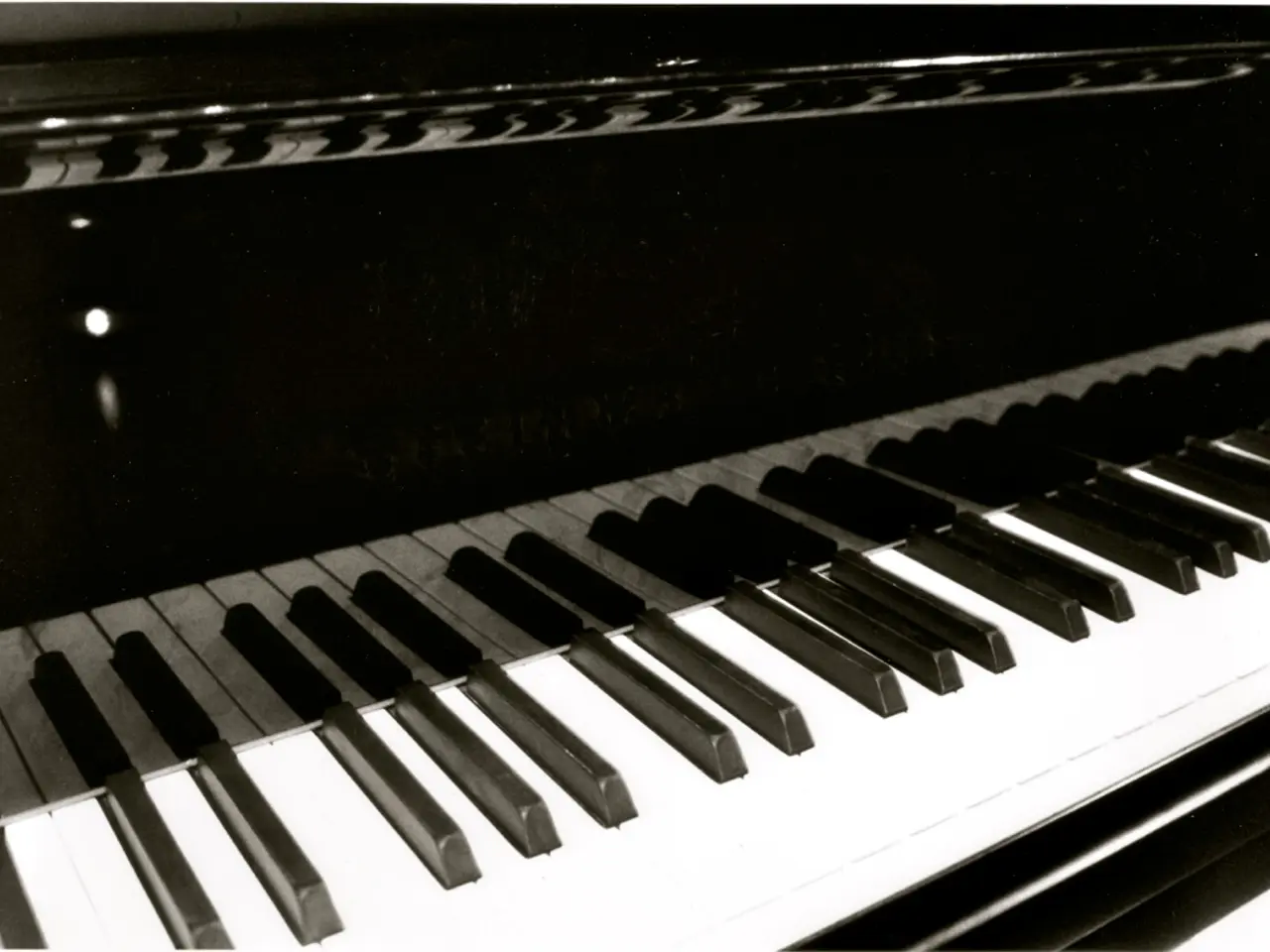Guide for Structuring Piano Practice Leading up to a Grade 5 Plus Exam
In the pursuit of Grade 6 piano exam success, a balanced and structured approach to practice sessions is crucial. Here's a guide on how to efficiently allocate time, keep a practice diary, focus on repertoire, maintain consistency, and reflect on progress.
Time Allocation
Divide each practice session into focused segments. For instance, spend 10-15 minutes warming up with scales and technical exercises, 20-30 minutes on repertoire pieces (breaking them down section by section), and 10-15 minutes on sight reading or theory practice if required by the exam syllabus. Adjust this schedule based on the student's stamina and exam deadlines.
Practice Diary/Log
Keeping a daily or weekly practice diary is highly recommended. In this log, students should record what they practiced, for how long, and any difficulties or accomplishments. This promotes accountability and allows teachers or parents to monitor progress. Some free editable practice log templates can be found online, including sections for self-reflection and parent signatures, enhancing engagement and commitment.
Repertoire Focus
According to AMEB Repertoire exam guidelines, for Grade 6 (Level 1 and 2 comparable), prepare pieces from multiple lists and include own choice works to build a balanced program. Practicing repertoire thoroughly is essential to mastering technique and musicality simultaneously.
Consistency
Regular daily practice—even in shorter durations—is more effective than sporadic long sessions. Build routine and gradually increase practice time as stamina develops.
Reflection and Adjustments
Use the diary to note which sections need extra attention and adapt subsequent practice sessions accordingly, ensuring continuous improvement.
Scales Practice
Scales should be practiced according to the circle of fifths and their relative minor tonalities. The first group to practice are C, am, F, dm, Bb, gm. The second group consists of Eb, Cm, Ab, Fm, Db, Bbm. The third group includes F#, Ebm, B, Abm, E, C#m. The fourth group comprises AM, F#m, DM, bm, GM, em.
Maintenance
Maintenance refers to the process of keeping up with previously mastered pieces. It's essential to allocate time for this in your practice schedule.
For Grade 6 students, it is recommended to have at least two 45-minute practice sessions a day, excluding lesson days, and one 45-minute session on lesson days. A suggested practice schedule includes 15 minutes of technical work, 15 minutes of new material, and 10 minutes of maintenance per session. Alternatively, 5 minutes of technical work, 25 minutes of new material, and 10 minutes of maintenance per session can also be used.
The author uses the app Daybook on an Android device for organizing practice sessions. Further reading on how to organize practice can be found by clicking this link. The "house memorization process" is another effective method for controlling the way a piece is learned, as outlined in the article.
Incorporating a practice diary fosters self-discipline and provides valuable feedback for both student and teacher. This structured approach helps build technical skills, musical expression, and exam readiness in a manageable and measurable way. Good luck with your Grade 6 piano exam preparation!
- The structured approach to piano practice includes allocating time not only for new repertoire but also for learning and mastering music theory and sight reading, which function as crucial parts of the education-and-self-development for a composer.
- To improve their skills and prepare for the exam, a composer might consider taking piano lessons that offer a balanced program of repertoire pieces from various lists, including own choice works, to develop a well-rounded education in music.
- In the pursuit of entertainment, a composer might find learning music and playing the piano an enjoyable form of relaxation, as it offers the opportunity to exercise creativity and express emotions through the language of music.




